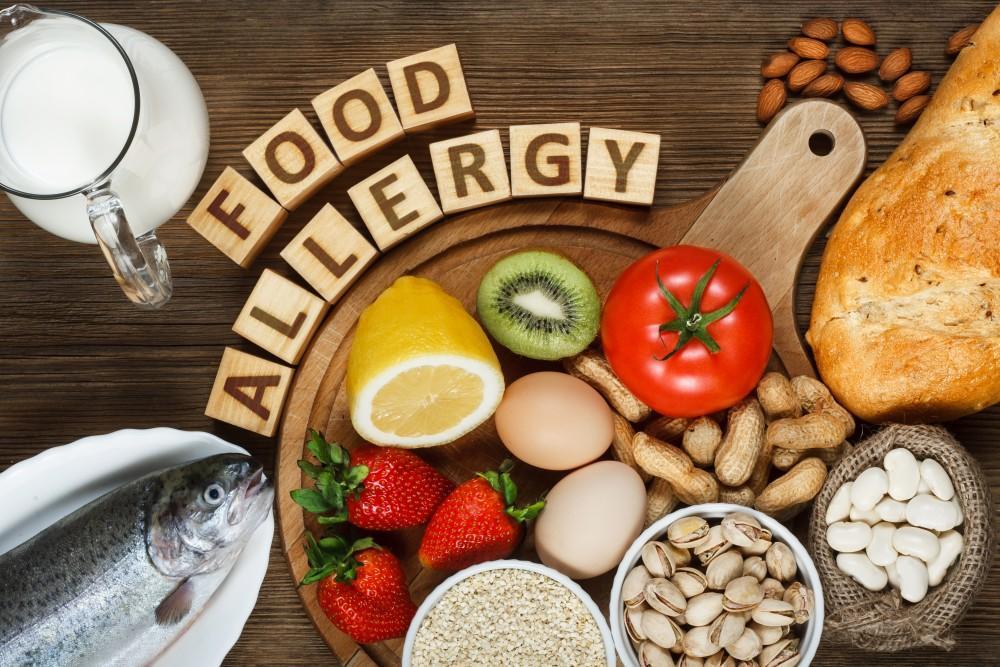
Understanding the Most Common Food Allergies

If you battle against food allergies, you’re not alone. In fact, 32 million Americans have food allergies, which typically get discovered in childhood.
Even though your body needs food to function, your immune system can see a specific substance in your food as harmful. As your immune system defends you, the result is a chemical and physical reaction known as a food allergy.
Our team at Regional Allergy, Asthma & Immunology Center considers it crucial to know about common food allergies and how they can affect you.
Food allergy basics
A food allergy happens when your body has an abnormal immune response to foods known as an allergen. Allergies differ from food intolerances and sensitivities since allergies involve the immune system and the others don’t.
The primary treatment for food allergies is avoiding the food allergen altogether. The more you avoid eating the food – even if you have mild symptoms – the lower your risk of anaphylaxis. If you have an allergic reaction, antihistamines and epinephrine injections are two treatment options to counteract the reaction.
Food allergy symptoms can range from mild to severe. Common reactions include:
- Rash
- Vomiting
- Diarrhea
- Bloating
- Tingling or itchy mouth
- Abdominal discomfort or pain
You need to seek medical attention immediately if you experience any symptoms such as:
- Fainting
- Dizziness
- Fast heart rate
- Shortness of breath
- Difficulty swallowing
- Chest discomfort or pain
- Swelling of the face, lips, and mouth
These are signs of anaphylaxis which can be life-threatening.
What are common food allergies?
Almost any food can cause an allergic reaction. There are more than 170 foods documented that have caused an allergic reaction. However, you can find most allergens in a group of foods known as the “Big 8.”
They are:
- Milk
- Eggs
- Fish
- Shellfish
- Tree nuts
- Peanuts
- Wheat
- Soy
Sesame seeds and their oil are also becoming high on the list of common allergens.
Adult-onset allergies
It’s common for food allergies in adults to go undiagnosed. If you’ve eaten certain foods your whole life without a problem, you’re less likely to realize that a food allergy is causing your symptoms. Many people are unaware that it’s not only possible to develop food allergies as an adult, but that it’s also common. Reports show that more than 12 million adults have developed food allergies later in life.
When food allergies strike in adulthood, the “Big 8” are the most common culprits. Adults are less likely to develop an allergy to milk, eggs, or wheat.
Getting food allergies diagnosed
If you think you or your child have allergic reactions to certain foods, it’s critical to get allergen testing. Our team performs tests called the open-food challenge, which involves consuming small amounts of the suspected allergen and then tracking your reaction. Additional testing may include skin tests or blood tests.
Living with food allergies
After receiving a food allergy diagnosis, you should avoid any foods you’re allergic to. This step may take a lot of adjustments depending on what your allergies are. You’ll need to always check food labels and menus, and don’t be afraid to ask questions about what ingredients are in the foods you buy at grocery stores or order in restaurants.
If you have questions about allergy testing or food allergies in general, call our team at 423-246-6445 to set up an appointment today at one of our offices in Kingsport or Johnson, Tennessee, or Abingdon, Virginia.
You Might Also Enjoy...


Help! My Child Broke Out In Hives

Our Favorite Ways to Make Your Home Allergen-Free

Recognizing Food Allergy Signs in Babies and Toddlers

Myths and Facts About Allergy Shots

